The future of work is here. It’s NOW. The COVID-19 pandemic has brought all workers—in particular parents—to a tipping point and accelerated trends that may have otherwise been years, if not decades away from becoming the norm.
Parents make up 40% of the workforce. They are managers, leaders, and skilled employees essential to success. And they need new modes of support and benefits as they continuously adjust to evolving challenges.
NOW is the opportunity to reset to better and build a more inclusive workplace.
As data from Cleo’s recent national survey of 1,500 working parents helps confirm, we’re in a moment that calls for fundamental change in the approach to family benefits and the promise they deliver on. Family support must be anchored in consistency, proactive action, and understanding the range of experiences of working parents and parents-to-be.
Half of families have had one or both parents leave the workforce or scale back their career.
working parent survey
NOW is the time to invest in parents and create a workplace where everyone can feel supported.
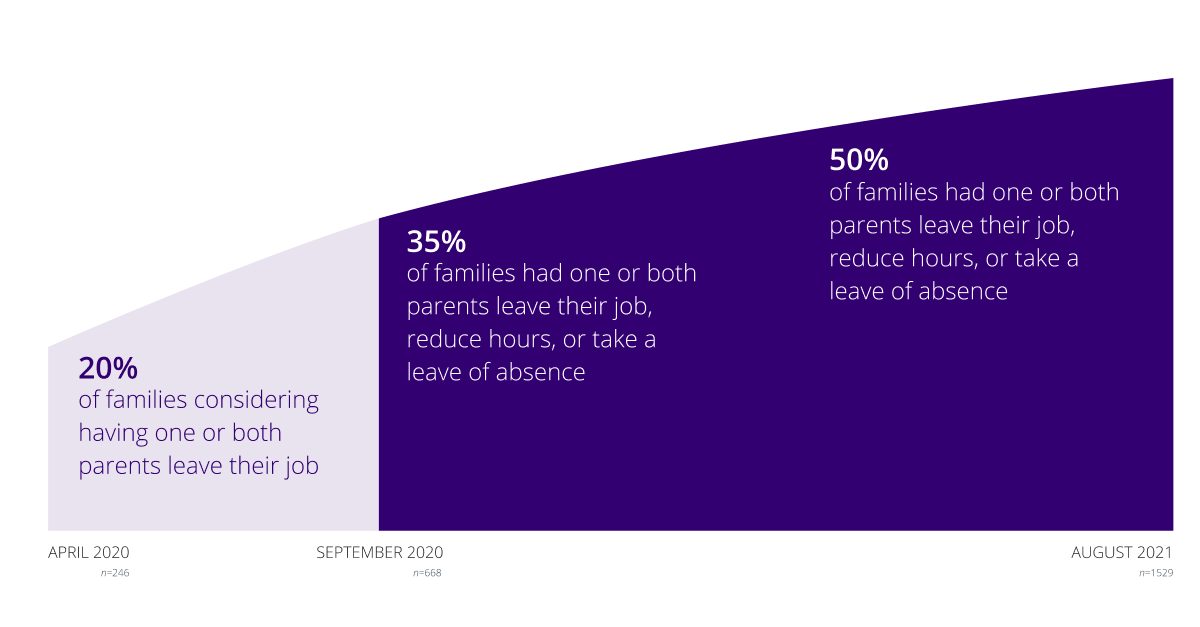
INVEST IN THE TALENT YOU HAVE
Parental attrition won’t end in 2021.
While nearly half of families have already seen one or both parents take a step back or away from their careers, 40% of all working parents are still considering a change, with rates among non-white families 28% higher than those of white or Caucasian parents.
Companies that can make parents feel included and supported are better positioned to retain top talent. Parents that feel included are 41% less likely to leave—and for working moms, in particular, it’s even more critical.
Parental attrition by racial identity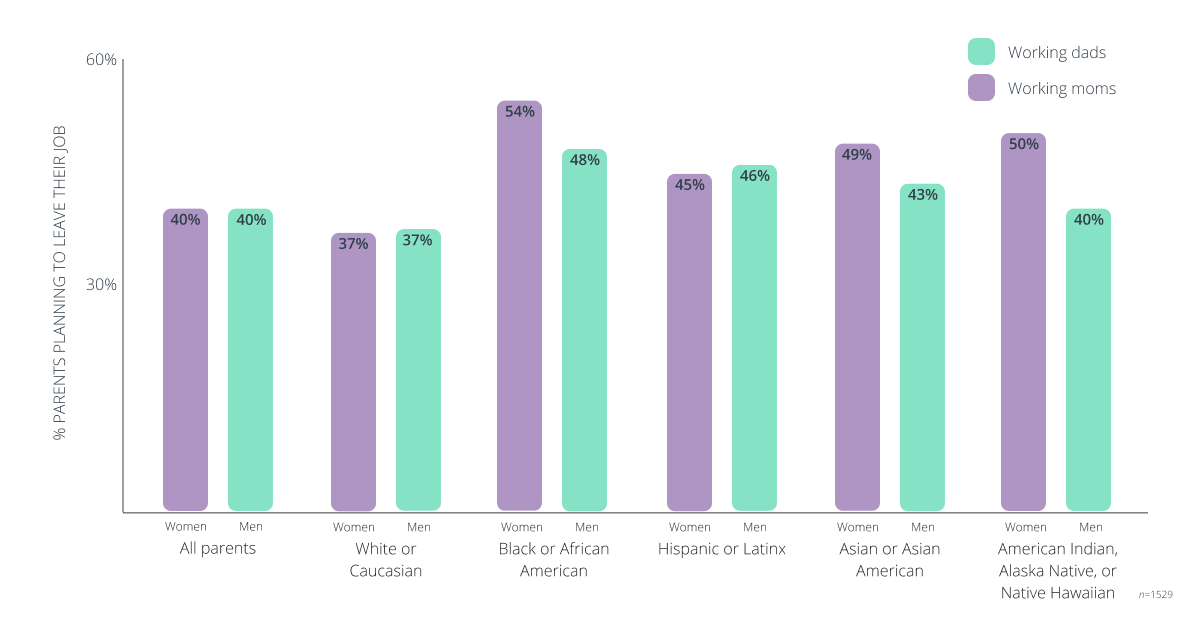
INVEST IN WHOLE FAMILY HEALTH
It’s not just new parents who need help, all parents need support.
While maternity care has long been a focal point of employer support and spending, families need support beyond welcoming a new baby. More than half of families shared that they are dealing with some type of pediatric health concern, a third of which is a neurodivergent or mental health condition. This is more than twice as many as in September 2020, and particularly notable as parents caring for a child with a specialized health concern are more likely to leave their job than those without.
Prevalence of pediatric health concerns
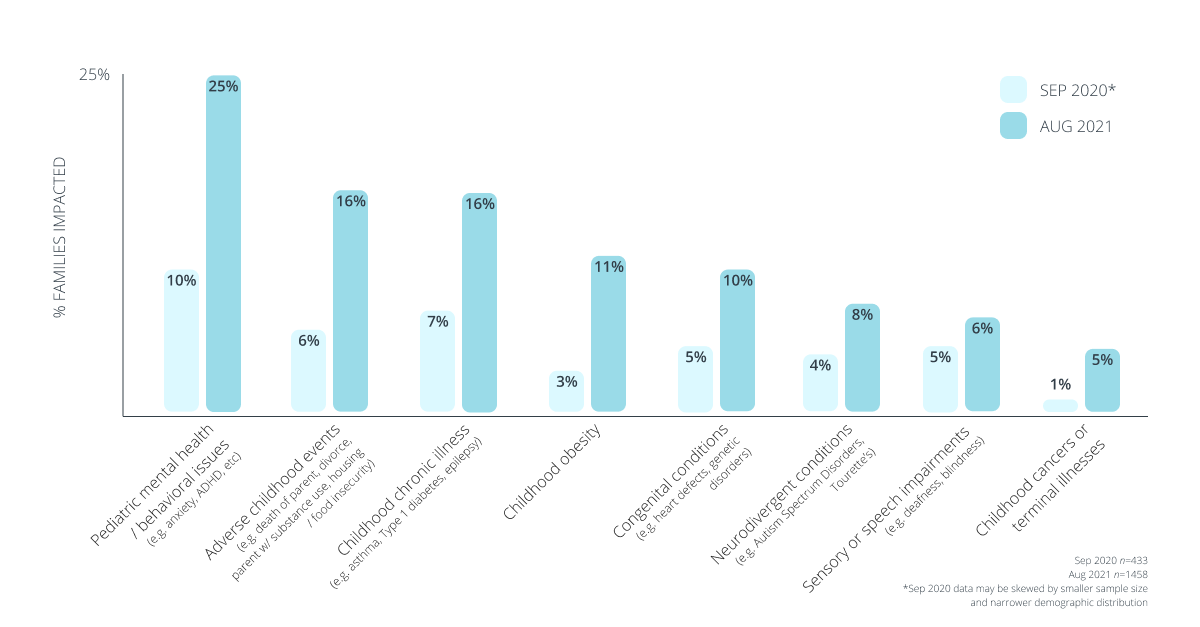
INVEST IN FLEXIBILITY
Parents will leave companies that don’t offer flexibility.
Half of all working parents have benefitted from new, more flexible schedules during the pandemic and aren’t ready to give that up. Amid the return to office life in tandem with in-person school, exposure to COVID is parents’ top concern, followed closely by a lack of flexibility.
Over a third of parents planning to leave their job cite flexibility as a major reason. Working moms in particular value choice in how or if they return to office and aren’t waiting for answers. If a decision on return to office hasn’t been announced, they are the most likely to be planning their exit.
Employees offered flexibility in their work schedule and location are more likely to stay with their current company.
Parental concerns about return to office
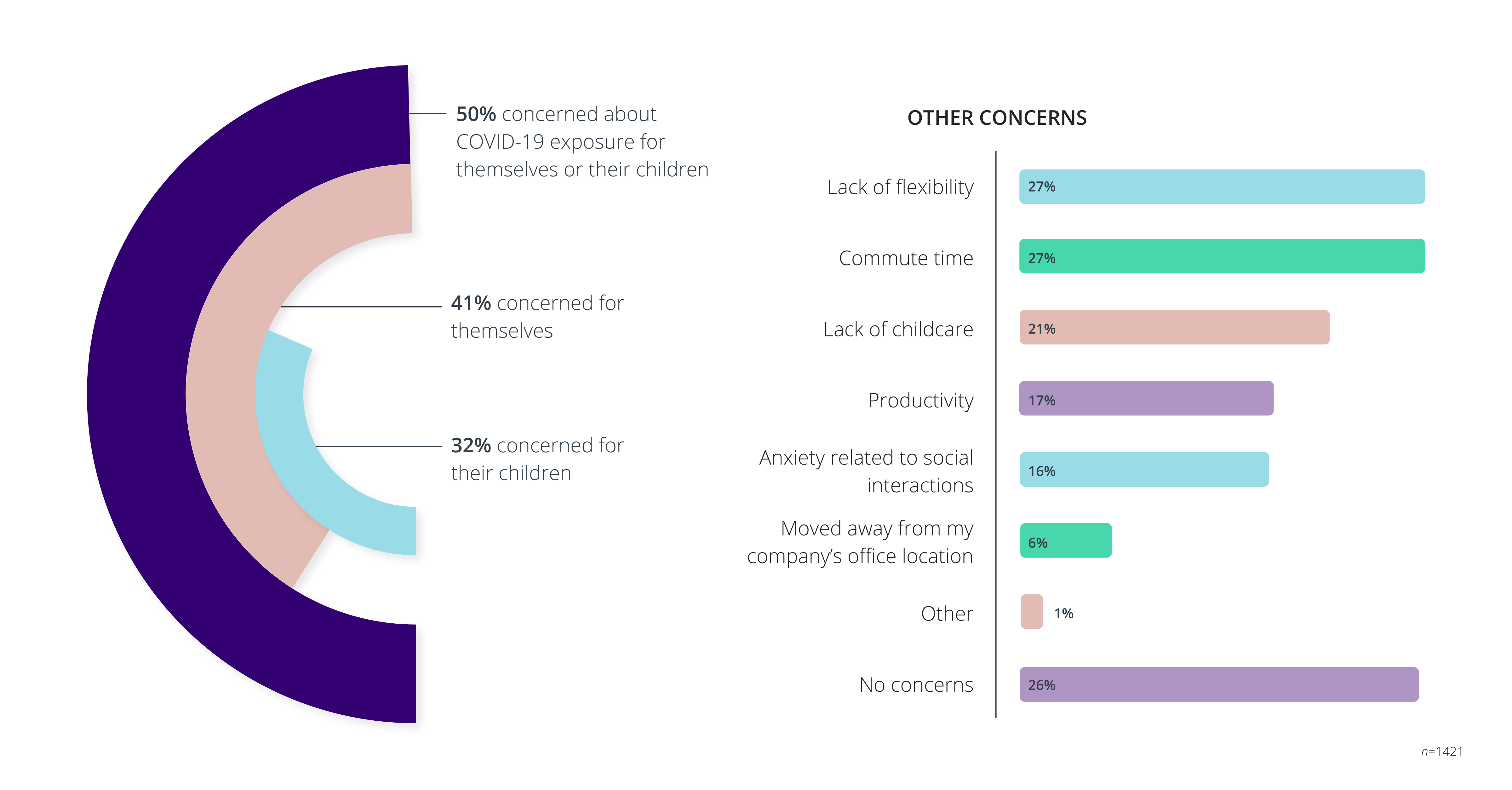
Download these insights — and more — as a presentation perfect for sharing amongst your colleagues!
INVEST IN GENDER EQUITY
Caregiving women face new and profound setbacks compared to men.
Women continue to carry the burden of caregiving in two-parent households. What’s more, women are more than twice as likely to also be caring for an adult relative like an aging parent.
Since the start of the pandemic, nearly half of men feel they’ve advanced in their careers more than or as much as expected, but for women it’s only 1 in 3. Since March 2020, women have largely made career changes out of necessity—to find employment, flexibility, or a safer work environment—with career advancement taking a backseat, whereas men are overwhelmingly more likely to feel a change propelled them forward.
INVEST IN EQUITABLE LEAVE
Welcoming a child into one’s family is a critical period for all parents.
3 in 5 expecting women are considering leaving their job, and working dads are 25% more likely to consider leaving at the point their partner returns to work. Yet, only 1 in 5 non-birth parents are offered paid parental leave.
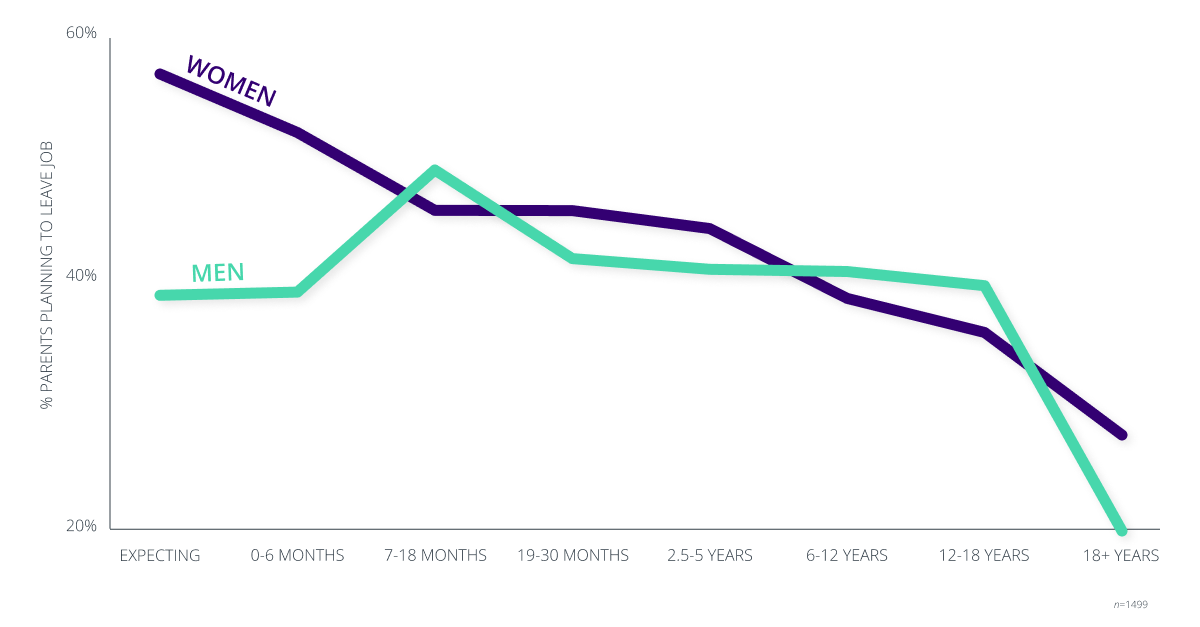
INVEST IN CAREGIVING
Insufficient access to care is a significant driver of attrition.
The majority of parents prioritize their caregiving responsibilities over career ambitions and taking on additional caregiving responsibilities during the pandemic set parents back regardless of gender. In the absence of full-time access to childcare, parents are more likely to be planning to leave their job.
Childcare is the most requested benefit by parents, but less than a fifth of working families have access through their employer. Even so, for almost half of those offered a childcare navigation or reimbursement benefit, it still isn’t enough support to find full-time, reliable childcare.
INVEST IN FAMILIES OF ALL TYPES
All parents deserve to feel supported.
LGBTQ+, divorced, and single parents all feel less supported at work than their partnered, heterosexual peers. Less than half of LGBTQ+ parents even feel they can be themselves at work, and specifically feel less supported in their role as a parent. Access to support for alternate paths to parenthood (adoption, surrogacy, fostering) is particularly important to this group, and only 16% of employers provide this within their benefits.
Employers can help working parents NOW.
<!–
Join us on August 26 for a live webinar to go deeper into the latest insights and learn how you can support your employees. Then, begin the first steps to commit to working parents:
–>
- Pledge to act. Sign the Invest in Parents pledge to begin your lasting commitment to supporting the unique needs of working families.
- Understand your employees. Surveying parents in your employee population is the best way to make them feel heard and to tailor your benefits and policies to what will actually make them feel supported.
- Invest in modern support for your working parents. Yesterday’s programs don’t meet today’s parents’ needs. That’s why 42% of employers plan to expand or add care as part of their employee benefits. And it works—employees that have support from Cleo are 26% less likely to leave their job than non-members.
Survey methodology
We field regular surveys of working parents to better anticipate evolving employer and family needs, and continue providing solutions that help both thrive. Find previous working parent surveys from April 2020, June 2020, September 2020.
We surveyed 1,529 full- or part-time working parents with children from newborn to age 18. Data is aggregated and anonymized. Survey responses are representative of parents in the United States across cities/states, race & ethnicity, and income levels. We recognize that gender is not binary. 51% of respondents were women, 42% men, 1.4% transgender, 1.4% nonbinary, >1% genderqueer/non-conforming. Data for transgender, nonbinary and gender non-conforming parents was not statistically significant to report on anonymously. 72% of respondents represent a two-parent, man/woman home, 11% a single woman home and 10% a two-parent LGBTQ+ home. 31% had one child, 37% had two, 28% had more than two, and 2.4% were expecting.
